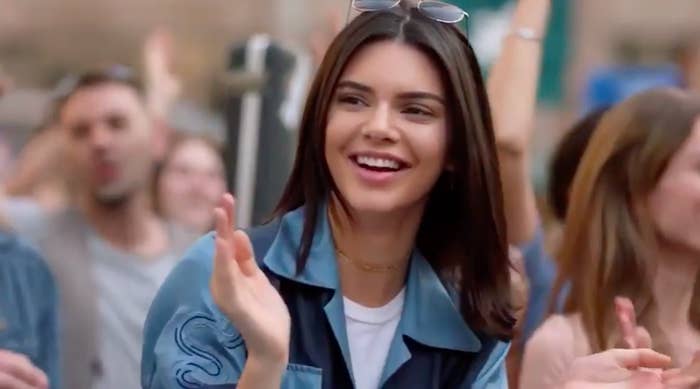
The murder hornets (remember them?) clearly weren’t a compelling enough storyline for the latest saga in the spectacle that is life in the United States, which explains why, within the last week, amid a global pandemic that is disproportionately killing black and brown people, the country swiftly reverted to a familiar refrain: antiblack racism.
Protests erupted around the country after a video circulated showing former Minneapolis police officer Derek Chauvin, left hand casually stuffed in his pocket, crushing George Floyd's neck with his knee, obstructing the man’s ability to breathe until he died. Floyd’s death at the hands of an officer — one who had 17 complaints filed against him over two decades of service — is yet another reminder of how little black lives mean in this country. That is coupled with the fact that COVID-19 continues to decimate not only black lives but black businesses, as the unemployment rate continues to catapult to historic numbers (40 million and counting) — a figure even more depressing for black Americans, less than half of whom are working at the present moment. This is all happening while the country is governed by a president who seems to have no problem actively inciting mayhem and violence, making it no surprise that millions across the US are responding with protests.
Our culture’s collective tolerance for bullshit is at an all-time low, which is also why celebrities — and brands — are being called out for their hollow statements, pitiful donations, and sometimes outright disrespectful stances on the protests sweeping the nation. The coronavirus pandemic has already highlighted how oblivious celebrities can be. The latest demonstrations not only illustrate how rich, famous people don’t seem to grasp the gravity of the situation but also how deeply committed they are to doing the bare minimum at a time when they could be using their massive platforms to make a meaningful difference.
In what was likely an attempt to show solidarity with protesters, Jennifer Lopez posted a generic meme stating, “It’s not white vs. black, It’s everyone vs. racists.” Lopez’s former paramour Diddy reacted similarly, tweeting, “This is not just a race issue this is a HUMAN RIGHTS ISSUE!!!!!!” The problem with these statements, no matter how well-intentioned, is that they come off as thinly veiled attempts to skirt around the reality that racism, a plague that has permeated the United States since the country’s inception, has specific and life-altering consequences for black people from the very moment we are born. The words feel embarrassing coming from Lopez, who has built her career on black aesthetics, and depressing coming from Diddy, who should simply know better.
After former Glee star Lea Michele posted a basic tweet in support of Floyd’s death recently, she was called out by Sammie Ware, an actor and singer who is black, for allegedly making Ware’s life on the set of the show “A LIVING HELL.” Two other Glee actors, Alex Newell and Amber Riley, posted GIF reactions, seemingly echoing Ware’s suggestion that Michele’s statement of allyship rang hollow. Even Beyoncé’s recent Instagram video, where she talks about Floyd’s death and advocates for “no more senseless killings of human beings,” falls flat because she repeatedly uses the phrase “people of color” when the brunt of the trauma being endured is by black people at the hands of police.
Last year, in an opinion piece for the LA Times, Nadra Widatalla wrote about why using “people of color” as a blanket term for all minorities ultimately serves no one, and this “‘one size fits all’ mentality toward diversity erases the specific needs of the most vulnerable communities.” Not saying “black” when you are, in fact, talking about an issue that largely affects black people is a way of diminishing long-standing frustrations with injustice in this country. Being precise in the language you use is important because it’s one of the most fundamental ways to show you’re serious about — and understanding of — the type of change you are purportedly trying to effect.
Take for instance Thor: Ragnarok director Taika Waititi, who, in response to an Atlanta press conference where rapper Killer Mike called for protesters “not to burn your own house down for anger with an enemy,” marveled at Mike’s composure, saying, “Eloquent. Clear. Everyone is angry but there is a way to direct that anger.” Waititi’s words feel haughty and completely unnecessary to people who are going through a collective trauma.
Even when looking past the coded word “eloquent,” there is the maddening realization that in times when black people have more than a right to be upset and distraught, people still want us to harness our anger and present it in a palatable way. Imagine how disconnected you have to be to tell people who have dealt with centuries of disenfranchisement to “direct” their rage in a way that is more comfortable for you. This approach trivializes what people are fighting for and ultimately underscores why things have reached this current breaking point.
How is this gesture anything more than a way for people who have unimaginable privilege to reassure each other that they’re on the right side of history?
And then there’s Ellen DeGeneres, who was blasted for what many considered to be a vague, lazy attempt at addressing the hurt felt by black people. “People of color in this country have faced injustice for far too long,” DeGeneres’s now-deleted tweet read. “For things to change, things must change." These meaningless words hold the same weight as a politician employing the overused phrase of “thoughts and prayers” after a mass shooting. If celebrities really want to make a difference and are truly serious about changing the way black lives are treated in this country, it’s time for them to take direct action. Be vocal and speak up like actor John Boyega, who hasn’t minced words when calling out racism, show physical support by getting in the fray like Ariana Grande or Halsey or Cole Sprouse, who was recently arrested for protesting police brutality. And if you can’t figure out how to do that, let your empty statements stay in your Notes app drafts and give money to relevant causes instead.
Even when they are making donations, some celebrities have still managed to fail quite spectacularly. Luxury fashion designer and artistic director of Louis Vuitton Virgil Abloh has been trending on Twitter since screenshots from his Instagram story showed that he donated a hefty $50 to a bail fund on behalf of “the kids in the streets.” (Abloh has since issued a statement on his Instagram, notifying followers that he has donated thousands of dollars to bail funds and other causes.) Other stars faced similar blowback: Actors Seth Rogen and Beanie Feldstein both updated their Twitter feeds two days after posting their original bail fund donations to let people know that they did actually contribute much more.
Self-indulgent celebrity tendencies lie on a spectrum, and high-profile stars who tweet “matched” to $50 donations are at least doing marginally better than people like Kylie and Kendall Jenner and Cara Delevingne, who limited their activism to tagging other famous people in a “Black Lives Matter chain” on Instagram as a way of amplifying the movement. (It appears Kendall hasn’t learned all that much about racial justice since she participated in a 2017 Pepsi commercial that completely missed the mark on protests and police brutality.) Others, like Drake, Rihanna, and Kylie Jenner, have posted as part of the Blackout Tuesday initiative where people share a simple black square accompanied by the hashtag #BlackLivesMatter or #BLM, making it harder for people who are going through those tags to find helpful information about the movement. Spreading the message is obviously a decent thing to do, but how is this immediately and tangibly helping the cause? How is this gesture anything more than a way for people who have unimaginable privilege to reassure each other that they’re on the right side of history?
Which brings me to why it’s been so shocking to see brands, as well as celebrities — six years after the Black Lives Matter movement began — adopt the messaging of the movement in their social media feeds. It feels especially cowardly coming at a time when they have more to lose by staying silent. TikTok, the NFL, Amazon, and now even Grindr have all issued statements about the racism black people face every day. But they mean little when you consider that not long ago TikTok suppressed videos from people with certain physical features and has generally been a place where white creators steal content from black creators. The NFL had a very public problem with Colin Kaepernick’s silent protest against police brutality for years, which effectively ended his career. Now, the organization is seemingly aligned with the values he tried to express through nonviolent action.
Amazon, which is owned by Jeff Bezos, the richest man on earth, has faced scrutiny for its treatment of employees, especially during the coronavirus pandemic. The message that something must be done to fight against the “inequitable and brutal treatment of Black people in our country” is coming from the same company that fired a black man for complaining about the ways Amazon has been slow to respond to protect workers from COVID-19. Like many other companies, the cosmetics brand L’Oréal posted a tweet saying it “stands in solidarity with the Black community, and against injustice of any kind.” The model Munroe Bergdorf expressed her outrage at the brand’s statement in an Instagram post, saying, “You dropped me from a campaign in 2017 and threw me to the wolves for speaking out about racism and white supremacy.” (At the time, L’Oréal said the model’s words were at odds with the company’s values.)
The way companies have so quickly pivoted to messaging that isn’t reflected in their actions — or their annual diversity reports — feels similar to hundreds of brands that now have no issue commodifying Pride Month to show they’re being more open and inclusive. But let’s be real; these companies are likely more concerned about their bottom line than about black lives and will do anything to placate people they’re attempting to sell products to. Any company expressing that black lives matter without donating time or money to relevant causes or actively working to make sure its black employees are thriving is doing nothing more than virtue-signaling, saying they’re committed to toppling white supremacy while simultaneously upholding it. It’s corporate gaslighting, and black people deserve better.
These empty-headed antics, from both celebrities and brands, illustrate that the actions they’re taking are simultaneously not enough and way too much. Black people are dying at the hands of the police. Black people are putting their bodies on the line — risking a respiratory infection — because even in the midst of a pandemic, we can never truly be free from the nation’s original sin: racism. People continue to be maimed by rubber bullets, sustaining injuries that will last for years, but there are many people — including black public figures like Tyler Perry, Yvette Nicole Brown, and Shekinah Anderson — who are more concerned with speaking out about looting and property damage than for the protection and well-being of living, breathing humans.
Buildings can be repaired, but nothing can resuscitate George Floyd. And that’s something worth rioting about. If you’re a powerful person who doesn’t have anything meaningful or informed to say, it might be better to say nothing at all. ●
